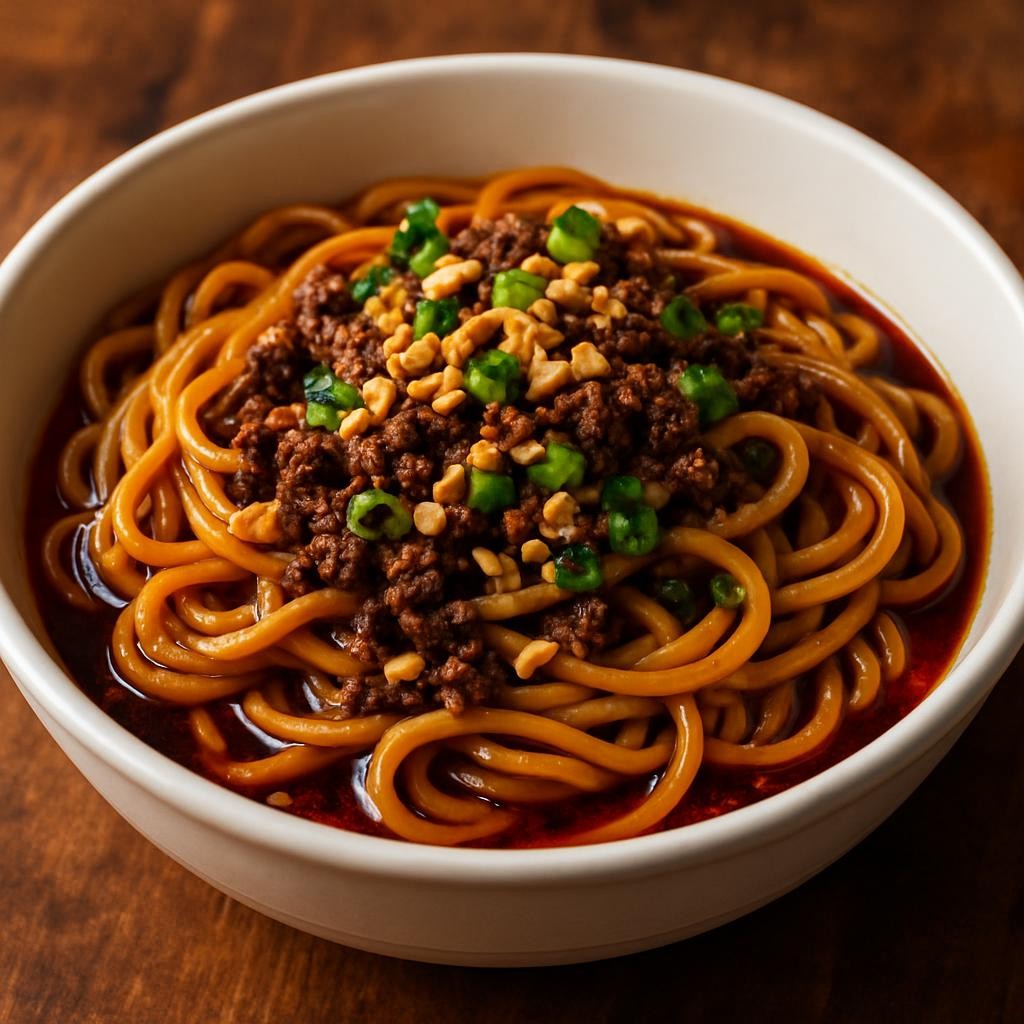Filipino Sisig is a vibrant and flavorful dish that has taken the culinary world by storm, thanks to its unique combination of savory, spicy, and tangy flavors. Traditionally made from parts of the pig’s head (and sometimes chicken or fish), it’s seasoned to perfection and served sizzling hot, often garnished with a squeeze of calamansi and a raw egg on top. The appeal of Sisig lies in its bold flavors and the delightful texture that comes from the crispy bits of meat, making it a favorite among food enthusiasts looking for an adventurous dish that’s both hearty and satisfying.

Why You Will Love This Recipe
This Sisig recipe is a perfect blend of rich, smoky flavors with a zesty kick that will tantalize your taste buds. Whether you’re a seasoned cook or a kitchen novice, the recipe is straightforward, making it easy to whip up a batch for family gatherings or intimate dinners. Moreover, it is incredibly versatile, as it can easily be adapted for different dietary requirements. It caters to meat lovers, yet can also be adjusted for vegan options, allowing everyone to enjoy this Filipino classic.
Tips and Tricks
To elevate your Sisig game, here are some helpful tips:
- Use a combination of meats: For a richer flavor, consider combining pork belly with pig’s ear or even chicken. This adds varying textures to the dish.
- Sizzling presentation: Serve Sisig on a hot cast iron skillet to keep it sizzling throughout your meal. This not only enhances the flavor but also presents a mouth-watering visual.
- Calamansi substitute: If calamansi is hard to find, you can use a mix of lime and lemon juice for a similar tangy effect.
- Experiment with heat: Adjust the amount of chili peppers to suit your heat tolerance. If you’re unsure, start with a smaller amount and add more to taste.
Make Ahead Tips
For those who like to prepare in advance, Sisig can be made in stages:
- Marinate the meat: You can marinate the pork overnight for deeper flavor.
- Cook the meat ahead: Cook the pork a day before, and then reheat it when you’re ready to serve. It will still taste deliciously smoky.
- Prep toppings: Chop up onions, chili, and calamansi ahead of time and store them in the refrigerator for easy assembly.

Recipe Variations
There are many ways to customize your Sisig:
- Vegan Sisig: Substitute pork with tofu or jackfruit, which absorbs flavors well and provides a meaty texture.
- Seafood Sisig: Use shrimp or fish instead of pork, and adjust the seasoning accordingly.
- Spicy Sisig: Add more chili peppers or a dash of hot sauce for an extra kick.
- Sinigang-inspired Sisig: Incorporate tamarind paste for a unique sour twist.
How to Serve
When serving Sisig, presentation is key. Serve it hot on a sizzling platter, garnished with a raw egg on top. Accompany it with steamed rice, a side of pickled vegetables, and a wedge of calamansi for squeezing over. Serve with a sprinkle of green onions for a pop of color and freshness.

Pairing Suggestions
To complement your Sisig:
- Drink pairings: A cold beer, especially a light lager, pairs beautifully with the rich flavors of Sisig. Alternatively, a refreshing calamansi juice or iced tea works wonderfully.
- Side dishes: Pair with steamed rice, a side salad, or even a spicy dipping sauce to balance the richness.
- Desserts: Finish your meal with a traditional Filipino dessert, like leche flan or halo-halo, for a sweet contrast.
How to Store
To keep your leftover Sisig fresh:
- Refrigeration: Store in an airtight container in the fridge for up to 3 days.
- Freezing: You can freeze Sisig for up to a month. Just ensure it’s cooled completely before freezing.
- Reheating: Reheat in a skillet over medium heat, adding a splash of water or broth to revive moisture. Avoid microwaving, as it can make the meat tough.
Equipment Needed
For this Sisig recipe, you will need:
- A sharp knife and cutting board for chopping.
- A large skillet or frying pan for cooking.
- A cast iron skillet for serving (optional but recommended).
- A mixing bowl for marinating the meat.

Dietary Adaptations
To adapt Sisig for various dietary needs:
- Vegan: Replace pork with tofu or tempeh and use a vegan sauce.
- Gluten-free: Ensure your seasoning sauces are gluten-free, particularly soy sauce.
- Nut-free: This recipe is naturally nut-free, but always check labels on sauces to be sure.
Seasonal Adaptations
Depending on the season, you can adapt the recipe:
- Summer: Use fresh vegetables like bell peppers and corn for added crunch.
- Winter: Consider adding root vegetables like carrots or potatoes to make it heartier.
Recipe FAQs
1. Can I use chicken instead of pork?
Yes! Chicken can be used, but adjust the cooking time since it cooks faster than pork.
2. How spicy is Sisig?
The spice level can be adjusted based on the amount of chili peppers used. Start with a small amount and taste as you go.
3. What can I substitute for calamansi?
Lime or lemon juice can be used as a substitute for calamansi in a pinch.
Filipino Sisig

Filipino Sisig is a vibrant and flavorful dish that has taken the culinary world by storm, thanks to its unique combination of savory, spicy, and tangy flavors.
Ingredients
- 1 lb pork belly, diced
- 1/2 lb pig’s ear, diced (optional)
- 1 onion, finely chopped
- 4 cloves garlic, minced
- 2-3 green chili peppers, sliced (adjust to taste)
- 1/4 cup soy sauce
- 1-2 tablespoons vinegar (preferably cane vinegar)
- 1 tablespoon calamansi juice (or lime juice)
- Salt and pepper to taste
- 1 egg (optional, for topping)
- Chopped green onions for garnish
Instructions
- Prepare the meat: Boil the diced pork belly and pig's ear in a pot of water for about an hour or until tender. Drain and let cool.
- Sauté aromatics: In a skillet, heat some oil over medium heat. Add the chopped onion and garlic, sauté until fragrant.
- Cook the meat: Add the boiled pork and pig's ear to the skillet. Increase the heat and cook until the meat is crispy and browned.
- Season: Pour in the soy sauce, vinegar, and calamansi juice. Mix well and let it cook for another 2-3 minutes. Adjust seasoning with salt and pepper.
- Serve: Transfer the Sisig to a sizzling hot plate. Top with a raw egg (if using) and garnish with sliced green onions. Squeeze calamansi juice over before serving.
Nutrition Information:
Yield: 4 Serving Size: 1Amount Per Serving: Calories: 525Total Fat: 34gSaturated Fat: 12gTrans Fat: 0gUnsaturated Fat: 20gCholesterol: 192mgSodium: 1113mgCarbohydrates: 8gFiber: 1gSugar: 4gProtein: 45g
Asianplated.com, occasionally offers nutritional information for recipes contained on this site. This information is provided as a courtesy and is an estimate only. This information comes from online calculators. Although allchickenrecipes.com attempts to provide accurate nutritional information, these figures are only estimates.
Final Thoughts
Filipino Sisig is not just a dish; it’s an experience that brings people together over bold flavors and sizzling textures. Whether you’re enjoying it as a late-night snack or a hearty meal, this recipe promises to deliver satisfaction in every bite. Don’t hesitate to experiment with the ingredients and make it your own; Sisig is all about personal touches and the joy of cooking. I hope you enjoy making and sharing this delightful dish as much as I do!


















